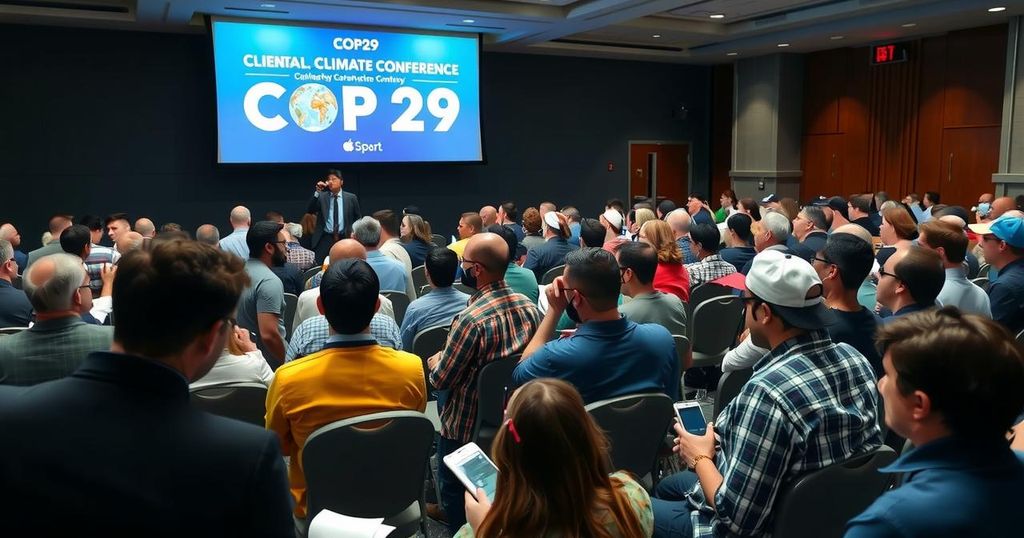The COP29 climate conference in Baku, Azerbaijan, focuses on international cooperation to combat climate change, particularly the financial obligations of developed nations to assist poorer countries. Questions arise regarding leadership attendance and their impact on climate policies, especially in light of Donald Trump’s upcoming presidency.
The COP29 climate change conference is currently underway in Baku, Azerbaijan, where leaders, scientists, and experts convene to tackle pressing climate issues. Participants seek to discuss strategies to combat climate change, including reducing carbon emissions and the reliance on fossil fuels. However, there are discrepancies in priorities among world leaders, and not all are attending this significant meeting. A central concern at this year’s conference is the financial responsibilities of developed nations toward poorer countries that are disproportionately affected by climate change. Furthermore, questions loom about the future impact of incoming leadership such as that of Donald Trump, who has previously expressed skepticism regarding climate change matters and endorsed increased fossil fuel usage to stimulate the economy.
The Conference of the Parties (COP) meetings, an annual gathering aimed at addressing global climate change, bring together stakeholders from around the world. This year, COP29 in Baku highlights critical discussions surrounding climate funding, particularly how nations that have benefitted from fossil fuels may assist those less fortunate in coping with climate adversities. The perceived inequity faced by developing nations is a pivotal topic, further complicated by the dynamics of international politics and leadership changes.
In conclusion, the COP29 conference serves as a crucial platform for addressing global climate concerns and the varying commitments among nations. The dialogue surrounding financial commitments from developed countries to those suffering the impacts of climate change is vital. Additionally, the imminent changes in political leadership may significantly influence future climate policies and actions. Stakeholder engagement and inquiries from the public are encouraged to enhance understanding and accountability in climate action.
Original Source: www.bbc.co.uk






